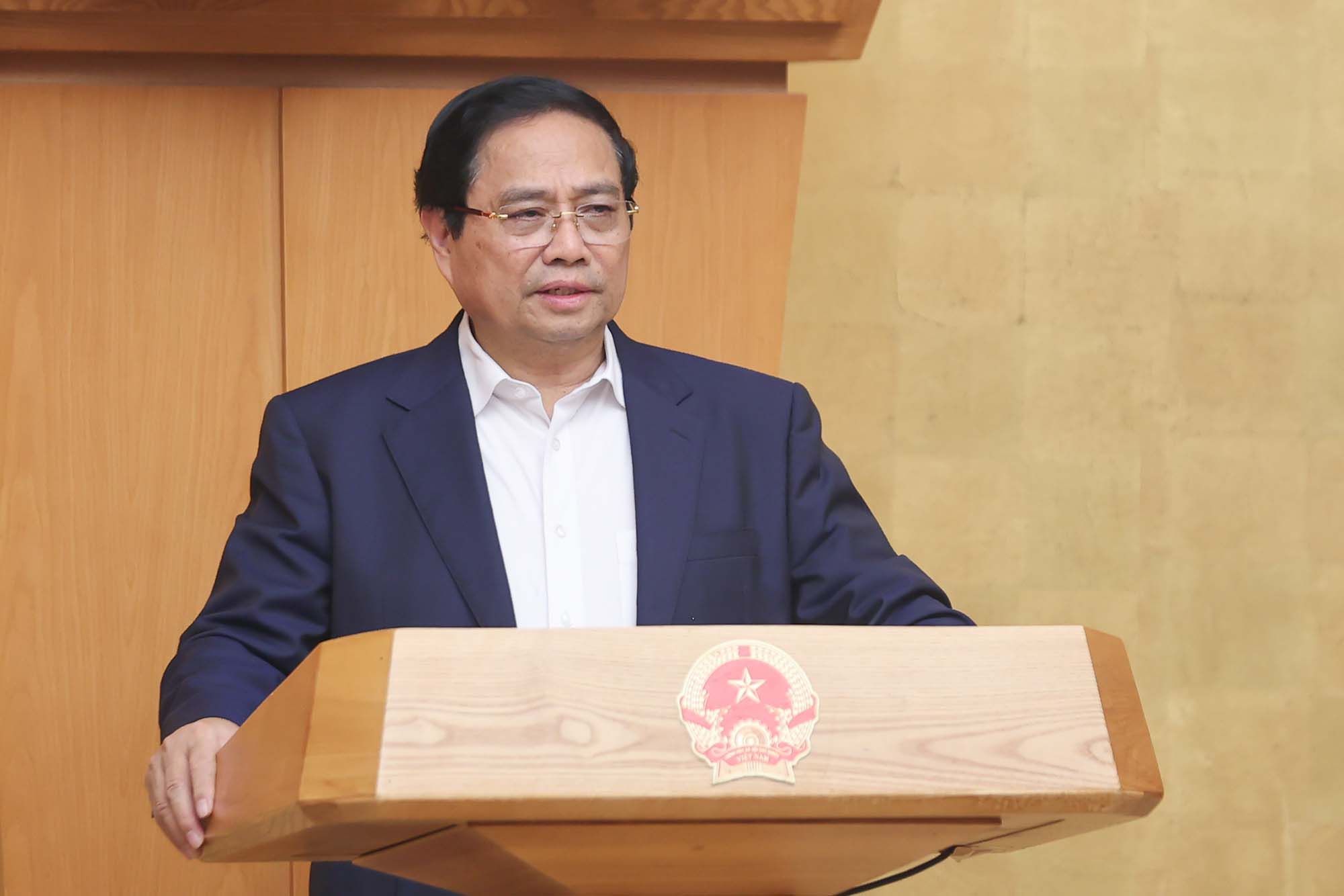The September 2025 law-making thematic meeting (first session) will review and give opinions on 9 draft laws, including:
Law on Personal Income Tax; Law on High Technology (amended); Law on amending and supplementing a number of articles of the Law on Technology Transfer; Law on amending and supplementing a number of articles of the Law on Intellectual Property; Law on amending and supplementing a number of articles of the Law on International Treaties; Law on amending and supplementing 10 Laws related to security and order; Law on Protection of State Secrets (amended); Law on amending and supplementing 15 Laws in the field of agriculture and environment; Law on Press (amended).
Speaking at the opening of the meeting, Politburo member and Prime Minister Pham Minh Chinh said that Resolution 66/NQ-CP of the Politburo has set a requirement that by 2025, the removal of obstacles and "bottlenecks" due to legal regulations and institutions serving national development will be basically completed.
Therefore, it is necessary to focus on leadership, direction, investment in facilities and other necessary conditions to achieve this goal.
Since the beginning of the term, the Government has focused on implementing the work of building and perfecting institutions - one of the three strategic breakthroughs and one of the important pillars, creating strong momentum to bring the country firmly into the new era.
In particular, the Government has organized 42 thematic sessions on law-making, reviewing and giving opinions on about 80 draft laws and resolutions.
In August and September 2025, the Government will continue to focus on law-making, organizing thematic sessions on law-making to promptly complete and submit to the National Assembly about 113 dossiers, documents, submissions and reports; including 47 draft laws and resolutions at the 10th Session of the 15th National Assembly.
According to the Prime Minister, there is not much time left from now until the opening of the 10th Session of the 15th National Assembly, the amount of work to prepare is very large, the tasks and requirements are very high, and the nature is very complicated.
Therefore, ministries and agencies, especially heads, need to promote responsibility, leadership, direction, and allocation of time, human resources, and resources for law-making and institutional improvement; high determination, great efforts, drastic and effective actions to complete the goals in institutional building and improvement.

The Prime Minister also requested ministers and heads of ministerial-level agencies to directly direct the work of building and perfecting institutions, taking primary responsibility for the quality of legal policies under the management of their ministries and branches, especially for draft laws and resolutions submitted at the upcoming 10th Session of the 15th National Assembly.
"In the immediate future, we must ensure good quality and keep up with the progress of draft laws and resolutions submitted to the National Assembly for approval at the next session" - the Prime Minister emphasized.
According to Prime Minister Pham Minh Chinh, there are draft laws in the form of "one law amending many laws", aiming to promptly remove legal difficulties and obstacles to promote socio-economic development, striving to achieve the set growth target.
The Prime Minister noted the major principles in law-making and institutional improvement such as: "What is ripe, clear, proven correct in practice, the majority of people agree, then legalize; what is still fluctuating, not under the authority of the National Assembly, then develop Government decrees for adjustment"; "regulations need to be concise, go straight to the problems facing"...
The Prime Minister also requested that the submitting agencies ensure concise and clear content that needs to be consulted; clearly state the contents of removal, the contents of completion, the contents of amendment and supplementation, especially the contents of decentralization and delegation of authority, along with resource allocation, improving implementation capacity, strengthening inspection, supervision and control of output.











